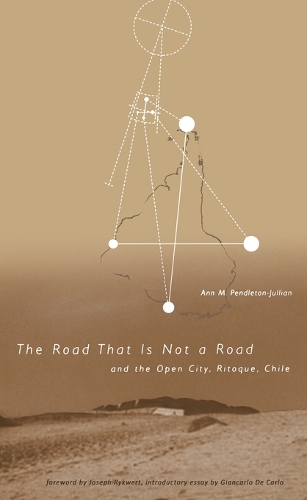
Road that Is Not a Road and the Open City, Ritoque, Chile
(Paperback)
Publishing Details
Road that Is Not a Road and the Open City, Ritoque, Chile
By (Author) Ann M. Pendleton-Jullian
MIT Press Ltd
MIT Press
29th October 1996
United States
Classifications
Tertiary Education
Non Fiction
720.983
Physical Properties
Paperback
196
Width 170mm, Height 277mm, Spine 15mm
522g
Description
Several thousand miles south of the equator along the Pacific coast of South America, is the site of the Open City Amereida. It is a laboratory for thought and work, conceived and built by the faculty of architecture of the Catholic University of Valparaiso. Here architects, poets, artists and engineers have been engaged in one of architectural education's most radical experiments for several decades. The school has long been a destination for those seeking an alternative to conventional academic practice and teaching. Now, its significance is being felt beyond the borders of Chile and South America. Ann Pendleton-Jullian tells the story of the Open City in Ritoque, Chile, a designed city still in formation that has no master plan, no imposed ordering devices, and no hierarchical networks of infrastructure. The strange buildings placed among dunes and grasslands reflect instead the mind's translation of urban phenomena and natural phenomena relative to the construction of memory, and a process of composition that is not dependent on stylistic precedents, drawing boards, or academic discourse. Teaching takes place on site and employs poetic methods to activate the design process; the endeavour is considered more important than the result. More than 100 photographs are included, capturing the spirit of the place and of its architecture. Pendleton-Jullian discusses influences behind the Open City - the work and working methods of Surrealist French poets, the words and creative attitude of Le Corbusier, the heritage of the South American landscape and culture. Some of the more provocative issues that the work raises include the idea of "city" as it relates to human activity, to its physical reality and to its intention; the premise of utopianism that rejects the foundations of utopia building; and issues of the sacred relative to the landscape in a modern culture.
Reviews
"The fascinating premise of this book is the belief in the possibility offounding a city in poetic acts, removing architecture from abstractgeometry and centering it on the poetic word. I am very positive aboutthis book and certainly recommend it. The questions it raises areextremely important for the practice of architecture, and particularly forthe teaching of the discipline. The author describes the Open City andits theoretical premises with great love. The existence of theexperimental city itself is rather unknown in North America. This is awork that deserves to be better known in the English speaking world, in thecontext of other important pedagogical experiments in architecture rangingfrom the Bauhaus and Ulm to Cooper Union." Alberto Perez-Gomez, Saidye Rosner BronfmanProfessor of the History of Architecture; Director, History and Theoryof Architecture Graduate Program, McGill University
Author Bio
Ann M. Pendleton-Jullian is an architect, writer, and educator. She is a Fellow at Stanford University's Center for Advanced Study in the Behavioral Sciences (CASBS), Professor and former Director at the Knowlton School of Architecture at Ohio State University, and Distinguished Visiting Professor of Design at Georgetown University and the Pardee RAND Graduate School of Public Policy. Previously, she was a Professor at MIT for fifteen years.
